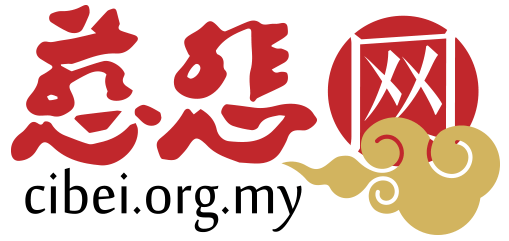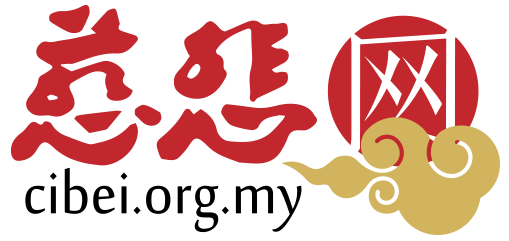| 眼 镜 蛇
心理的活动就像能致人於死的眼镜蛇。假如我们不去打扰一条眼镜蛇,它自然会走它的;即使它非常毒,我们也不会受到它的影响;只要我们不走近它或去捉它,它就不会来咬我们。眼镜蛇会照著它的本性行动,事情就是如此!如果你聪明的话,就别去惹它。同样地,就让那些不好的和好的顺其自然——依它的本性而随它去不要执著喜欢和不喜欢,如同你不会去打扰眼镜蛇一样。
一个聪明的人,将会以这种态度来对待在他心中升起的种种情绪。当善的情绪在心中生起时,让它自是善的,并且了解它的本然;同样地,我们也让恶的自是恶的,让它顺其自然。不要执著,因为我们什么都不要!我们不要恶,也不要善;我们不要负担和轻松,乃至不求快乐和痛苦。当我们的欲求止息时,平静便稳固地建立起来了。
|Cobra
Mental activity is like a deadly, poisonous cobra. If we don’t interfere with a cobra, it simply goes its own way. Even though it may be extremely poisonous, we are not affected by it. We don’t go near it, or take hold of it, and so it doesn’t bite us. The cobra does what is natural for a cobra to do. That’s the way it is. If you are clever, you’ll leave it alone. Likewise, you let be that which is not good - you let it be according to its own nature. You also let be that which is good. Don’t grab at liking and disliking, just as you wouldn’t grab at the cobra. One who is clever will have this kind of attitude towards the various moods that arise in his mind. When goodness arises, we let it be good. We understand its nature. In the same, we let be the non-good. We let it be according to its nature. We don’t take hold of it because we don’t want anything. We don’t want evil. We don’t want good. We don’t want heaviness or lightness, happiness or suffering. When our wanting is at an end, peace is firmly established.
| 椰 子 壳
欲是染著的,但首先我们必须有欲才能开始修行“道”。假设你到市场去买椰子,提著它们回来时,路上,有人问你:“你为什么要买这些椰子呢?”
“买来吃啊!”
“你连壳也吃吗?”
“当然不!”
“我不相信。如果你不打算吃壳,又为什么要买椰子呢?”
好,你怎么说?你要怎样回答这个问题?
我们是靠著欲望起修的,如果我们没有欲望,我们就不会去修行。你知道吗?!这样思惟可以产生智慧。例如:那些椰子,你要连壳子也一起吃下去吗?当然不!那又为什么要椰子壳呢?因为椰子壳的用途是将椰子给包起来,吃了过后,再将壳给扔掉,就没问题了。
我们的修行也是如此。我们不是要吃壳,只不过现在还不是丢掉壳的时候。我们先将它们收藏起来,就如我们依靠欲望修行一样,修行便是如此。如果有人硬要说我们连椰子壳也吃,那是他们的事,与我们无关,只要我们清楚自己在做什么就够了。
|Coconut Shells
Desire is a defilement. But we must first have desire in order to start practicing the Way. Suppose you went to buy coconuts at the market and while carrying them back home someone asked: “Why did you buy those coconuts?” “I bought them to eat,” you reply. “Are you going to eat the shells, too?” “Of course not!” “I don’t believe you,” he insists. “If you’re not going to eat the shells, then why did you buy them?” Well, what do you say? How are you going to answer that question?
We practice with desire to begin with. If we didn’t have desire, we wouldn’t practice. Contemplating in this way can give rise to wisdom, you know. For example, those coconuts: Are you going to eat the shells as well? Of course not. Then why do you take them? They’re useful for wrapping the coconuts in. If after eating the coconuts you throw the shells away, there is no problem. Our practice is the same. We keep desire first, just like we do with the coconut shells, for it’s still not time to “throw” it away. This is how the practice is. If somebody wants to accuse us of eating coconut shells, that’s their business. We know what we’re doing.
| 烹 饪
首先我们要训练我们的身和口远离秽恶,这就是功德。有些人认为要有功德必须整天整夜地背诵巴利文的经句,但事实上,只要使你的身、口清争无瑕疵,就是功德了。这并不难解,就像在烹调食物,我们放一点点这个,放一点点那个,直到恰到好处、美味可口为止。一旦调配出美味的食物时,就不需再添加任何的东西,因为正确的佐料都已经加了。同样的道理,确定我们的身行和言语没有缺失,这样就可以带给我们“美味”和恰到好处的功德。现在,我们已经有了正见。
|Cooking
At first, we train the body and speech to be free of unwholesomeness. This is virtue. Some people think that to have virtue you must memorize Pali phrases and chant all day and night, but really all you have to do is make your body and speech blameless, and that’s virtue. It’s not so difficult to understand. It’s just like cooking food - put in a little bit of this and a little bit of that until it’s just right and it’s delicious. And once it’s delicious, you don’t have to put anything else into it. The right ingredients have already been added. In the same way, taking care that our actions and speech are proper will give us delicious virtue, virtue that is just right.
- 阿姜查弘法系列之《森林里的一棵树》Dharma Verses from "A tree in the forest" by Ajahn Chah
图片|Chandaloka
評論


